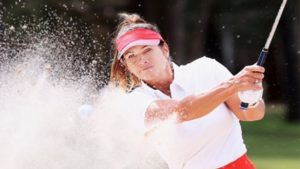BananaLab looks to seize on a first mover advantage in the local market for experience gift-sets

(Pic: Getty Images)
Eric Amiel and Tom Dufraisse were on their way back from a surfing trip in Torquay when they hatched the idea for BananaLab — the gift box idea selling packaged user experiences.
Both hailing from France, the pair moved to Australia around five years ago after starting their career in large corporate firms (Amiel in engineering and Dufraisse in insurance).
But like many startup founders, they felt the urge to take a risk and create a business from scratch that was more aligned with their values and interests.
“We both like sports and adventure and we were thinking about different ideas. In France, selling experiences via gift-box sets are very popular and we hadn’t seen any in Australia. So it looked like a market opportunity in a space that we love,” Dufraisse told Stockhead.
The market in France is led by two key players — Smartbox and Wonderbox — and Amiel said it’s an industry that now turns over in excess of €1 billion ($1.6 billion) in annual revenue.
Starting from scratch
Having formed their idea in 2015, it took another two years of leg work to get the business off the ground before BananaLab launched in December 2017.
“When we started talking to potential partners, they didn’t have much idea about the market,” Dufraisse said.
There were a number of knock-backs, but eventually the pair struck a winner with Kite Republic (KR) — the kite surfing instructor based at St Kilda beach in Melbourne.
From there they steadily built their client book, with a more integrated strategy that Dufraisse said differentiated the offering from competitors such as Red Balloon.
“So when we sell kitesurfing lessons from KR, we’ll promote their brand and management team on our site and provide backlinks,” he said.
“It means that customers have a simple way to confirm that the experience they’re going to buy is being provided by a great operator.”
Scaling up
Amiel said that around six months after starting, BananaLab was the second-biggest experience provider in the local market and by the middle of this year, the company employed 10 people and had put together a senior advisory team.
“We took a step-by-step approach, building our brand and product range then setting up the website,” he said.
“It took us around a year to develop the site and validate that the online remuneration process worked — which is important as we scale up so all of our partners understand how they get paid.”
“Once that was done we started to involve our partners, and launched online with minimal promotion to manage growth. Then we added physical boxes and added a store network in Melbourne.”
“We worked with a couple of boutique stores in the CBD area, which allowed to test-run the product and optimise it for when we deal with larger retailers.”
Looking ahead
Having set out a platform for growth in the local market, Dufraisse said BananaLab now has a three-step pathway to boost distribution over the next 12 months.
That includes an expanded gift box offering with customised experience packages across gender (mens, womens & couples) and sector (e.g. food and wine).
The second focus is distribution, starting with mainstream retailers such as Coles, Woolworths and David Jones. Dufraisse and Amiel are also in negotiations with Decathlon — the French sporting goods giant that now has a five-store network in Australia — to stock BananaLab gift books in-store.
The company is also eyeing off a “huge opportunity” in the corporate market, such as recruitment companies that provide gifts for employees who find placements.
By the middle of next year, BananaLab plans to have a customised product range and expanded distribution network in place. To do that, the founders want to recruit “another three of four people” to the team, and also raise some capital.
“To this point, the business has funded itself organically. But now we’re approaching the larger retailers, it’s likely we’ll need some capital. So we’re planning to raise funds in early 2020,” Amiel said.
The company has received some early interest from high net-worth investors, and is also exploring leads in venture capital.
“We’re finalising documentation for investors as we speak, and we’ll be starting negotiations in the next few weeks,” Amiel said.
UNLOCK INSIGHTS
Discover the untold stories of emerging ASX stocks.
Daily news and expert analysis, it's free to subscribe.
By proceeding, you confirm you understand that we handle personal information in accordance with our Privacy Policy.








